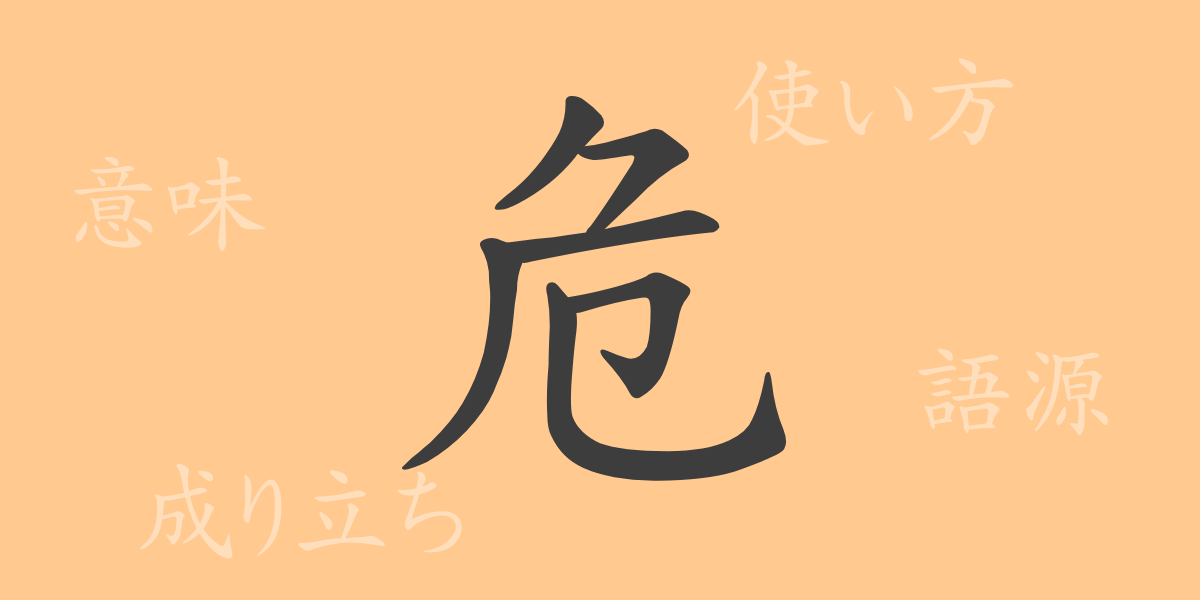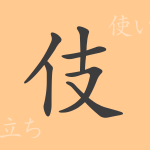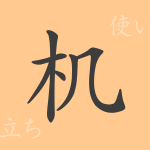Japanese characters each carry deep meanings and histories. The Kanji ‘危’ (Ki) is no exception. This article delves into the origins, meanings, usages, readings, stroke count, radicals, and even phrases and proverbs that include ‘危’, uncovering the full picture of this Kanji commonly encountered in everyday life.
The Origin (Etymology) of 危
The Kanji ‘危’ (Ki) originates from ancient Chinese pictographs. Initially, it depicted a person standing on the edge of a cliff to represent a state of danger or instability. Over time, the character has evolved to its current form, yet its essential meaning remains unchanged, symbolizing ‘peril’ or ‘hazard’.
The Meaning and Usage of 危
The Kanji ‘危’ (Ki) is widely used to denote danger or crisis. It is utilized to describe situations involving risk or urgent matters. Metaphorically, it also conveys a sense of narrowly avoiding a negative outcome, as in the phrase ‘危うく遅刻するところだった’ (Aya-uku-tikoku-surutokodatta), which means ‘nearly being late’.
Readings, Stroke Count, and Radical of 危
Basic information about the Kanji ‘危’ (Ki) is as follows:
- Readings: On’yomi (Sino-Japanese reading) is ‘Ki’ , Kun’yomi (native Japanese reading) is ‘Abu-nai’, ‘Aya-ui’, ‘Aya-bumu’.
- Stroke Count: 6 strokes in total.
- Radical: 卩 (Husidukuri)
Phrases, Idioms, and Proverbs Using 危 and Their Meanings
There are several phrases, idioms, and proverbs that include ‘危’ (Ki), such as:
- 危機一髪 (Kikiippatu): Escaping from an extremely dangerous situation by the skin of one’s teeth.
- 危急存亡 (Kikyuusonbotu): The brink of existence or demise for a nation or organization.
- 危言危行 (Kigenkikou): Dangerous words and actions. Saying or doing things that could put others in danger.
- 危うきに近寄らず (Aya-ukini-tikayo-razu): The teaching that one should avoid danger.
Conclusion on 危
The Kanji ‘危’ (Ki), as its shape suggests, is used to express danger or instability. In Japanese, it plays a significant role in various phrases, idioms, and proverbs, enhancing our expressive abilities in language. Understanding and using this Kanji correctly can enrich our verbal expressions.

























